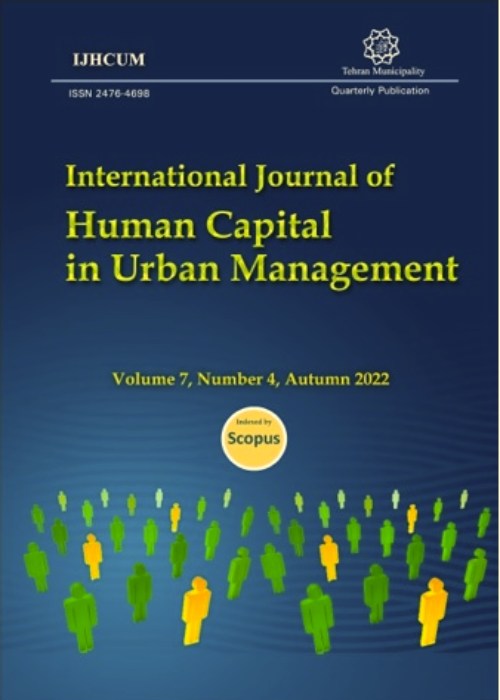Conceptual model of entrepreneurial talent management in organizations using structural equation approach
Talent management is an emerging research field in human resource management which is vital for the survival and competitive advantage of the organization. Albeit many studies have been done on the component of talent management, yet so far the entrepreneurship segment has not been much considered in this field, and surprisingly an extensive model of entrepreneurial talent management in the organization has not been presented. Therefore, the purpose of this study is to present a conceptual model of entrepreneurial talent management in organizations.
The present study is conducted with a mixed and exploratory approach in order to present a management model of entrepreneurial talent in 22 Districts of the Municipality of Tehran municipality in Iran. In the qualitative section, while reviewing the literature and research background, semi-structured in-depth interviews were conducted with 45 experts from Municipality of Tehran and university professors. In the quantitative part, the statistical population consisted of 450 managers and experts who have been working in the Municipality of Tehran from the beginning of 2019 to the end of 2020. The sample size was estimated to be 212 people according to the sampling of classified clusters through Cochran's formula, and the researcher-made questionnaire consisting of 56 items was distributed among the statistical sample according to the qualitative part. Using Amus 22 structural equation software, the data were statistically analyzed in a quantitative section to analyze the path and test the hypotheses.
In the qualitative part, by performing the process of coding and approval of experts by fuzzy Delphi method in two stages and expert response analysis to 11 components of perceptual skills, decision making, social intelligence, change leadership, consequentialism (performance management), people management, sustainability and accountability, adherence to ethical principles, complexity, recognition and focus and 57 indicators appropriate to these components were confirmed as influential factors in the model. In the quantitative part, the approved indicators were placed in the form of a questionnaire. Analysis of the questionnaire revealed that the complexity component, people management and decision-making with 0.64, 0.63 and 0.61 had the highest factor load and the sustainability and accountability component with 0.5 had the lowest impact on the model, respectively.
The results of this paper show that this model depends on various variables and can be considered and used in technology-based programs in talent assessment centers. The results also showed that municipal managers must create a creative environment for employees to express their ideas and participate in decision-making, and this leads to improving and changing the attitude and behavior of employees.
- حق عضویت دریافتی صرف حمایت از نشریات عضو و نگهداری، تکمیل و توسعه مگیران میشود.
- پرداخت حق اشتراک و دانلود مقالات اجازه بازنشر آن در سایر رسانههای چاپی و دیجیتال را به کاربر نمیدهد.



